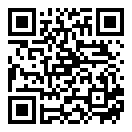Abstract:
In sociology of ethics, the quiddity and nature of morality are realized through the acquaintance with the social structure and system of social action. Farabi, a Muslim thinker, elaborates at length in some of his works on the relationship between morality and structure of society, from the perspective of sociology of ethics. A review of the works of Muslim thinkers contributes to the production of knowledge according to the native Islamic culture. This research is centered on the question of the relationship between moral and social structure in Farabi’s view. After examining Farabi’s works by using a hermeneutic method and asking questions about this topic, the paper tries to answer these questions. Farabi adopts a moral view on the form of social life and class structure of societies, on one hand, and considers the moral system to be influenced by the model used by the government ruling class, employment and labor distribution, peer groups, the style of housing architecture and urbanization, topology and climate, etc on the other.





